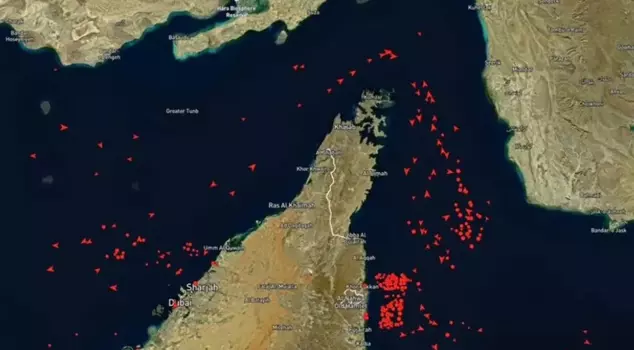
23.06.2025 16:20
Tensions are high in the Strait of Hormuz following the attacks by Israel and the United States on Iran. During this period, when Iran is discussing the possibility of closing the strait, the White House issued a statement indicating that diplomatic efforts to find a solution with Iran are ongoing. The statement also added, "Closing the Strait of Hormuz would be foolish."
There is a sense of unease in the Strait of Hormuz, where attention has focused following the conflict that began with Israel's attacks on Iran and the U.S. attacks on Iran's nuclear facilities.
On the days when Iran was discussing its decision to close the Strait of Hormuz, a statement came from the White House. The White House stated, "Trump continues to be interested in a diplomatic solution with Iran. Intelligence reports indicate that Iran is weeks away from a nuclear weapon. Closing the Strait of Hormuz would be foolish."
THE STRAIT OF HORMUZ: A KEY POINT FOR TRADE
The narrow waterway of the Strait of Hormuz, located at the mouth of the Persian Gulf, facilitates the transportation of oil and liquefied natural gas (LNG) production from the Middle East to global markets via the Oman Sea and the Indian Ocean.
This strategic passage, used for transporting about one-third of the crude oil shipped by sea, plays a critical role in the shipment of crude oil and condensate from producers in the Middle East, primarily Saudi Arabia and the United Arab Emirates. The oil trade in the Strait of Hormuz accounts for one-fifth of the total oil consumption in the world.
Approximately 20 million barrels of oil and oil products pass through the Strait of Hormuz daily, with a large portion reaching Asian markets, primarily China.
A significant portion of Iran's oil exports is sent to China via the Strait of Hormuz.
Similarly, 85% of Iraqi oil also passes through the Strait of Hormuz.
Saudi Arabia accounts for 35% of the total oil transported through the Strait of Hormuz, the United Arab Emirates for 20%, and Iraq for 17% of the exports.
Additionally, 20% of global natural gas trade also passes through this strait. 87% of Qatar's LNG exports from the Strait of Hormuz are sent to Asia, while 13% are sent to European countries.